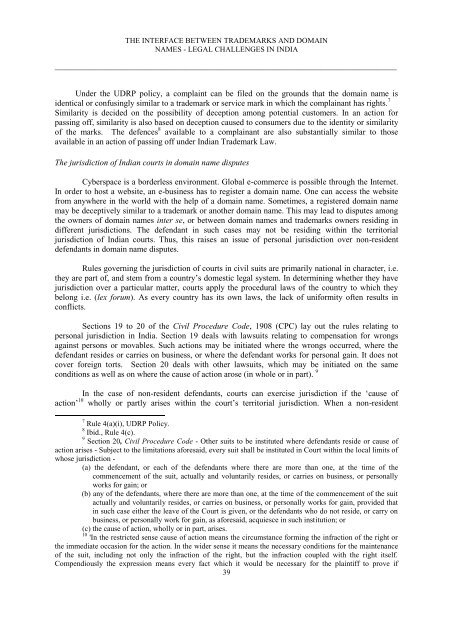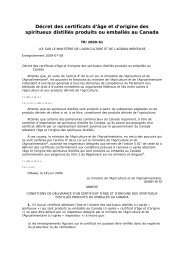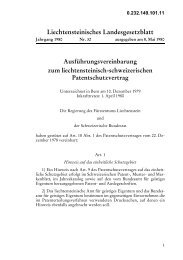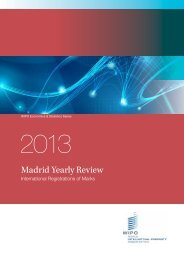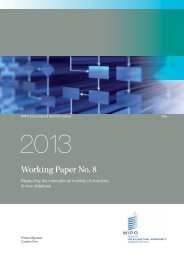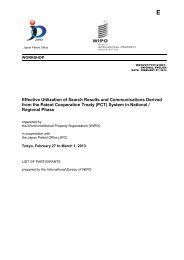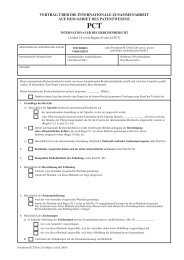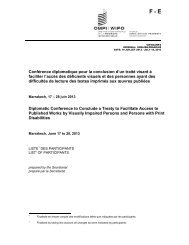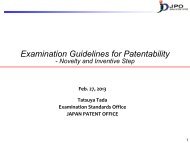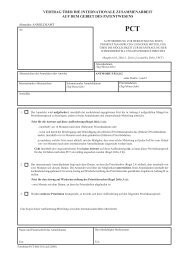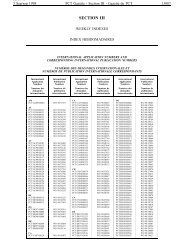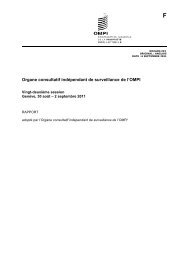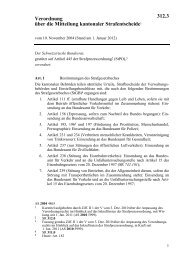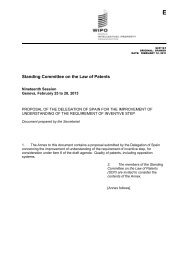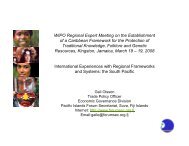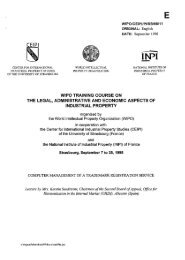WIPO-WTO COLLOQUIUM PAPERS
WIPO-WTO COLLOQUIUM PAPERS
WIPO-WTO COLLOQUIUM PAPERS
Create successful ePaper yourself
Turn your PDF publications into a flip-book with our unique Google optimized e-Paper software.
THE INTERFACE BETWEEN TRADEMARKS AND DOMAIN<br />
NAMES - LEGAL CHALLENGES IN INDIA<br />
__________________________________________________________________________________________<br />
Under the UDRP policy, a complaint can be filed on the grounds that the domain name is<br />
identical or confusingly similar to a trademark or service mark in which the complainant has rights. 7<br />
Similarity is decided on the possibility of deception among potential customers. In an action for<br />
passing off, similarity is also based on deception caused to consumers due to the identity or similarity<br />
of the marks. The defences 8 available to a complainant are also substantially similar to those<br />
available in an action of passing off under Indian Trademark Law.<br />
The jurisdiction of Indian courts in domain name disputes<br />
Cyberspace is a borderless environment. Global e-commerce is possible through the Internet.<br />
In order to host a website, an e-business has to register a domain name. One can access the website<br />
from anywhere in the world with the help of a domain name. Sometimes, a registered domain name<br />
may be deceptively similar to a trademark or another domain name. This may lead to disputes among<br />
the owners of domain names inter se, or between domain names and trademarks owners residing in<br />
different jurisdictions. The defendant in such cases may not be residing within the territorial<br />
jurisdiction of Indian courts. Thus, this raises an issue of personal jurisdiction over non-resident<br />
defendants in domain name disputes.<br />
Rules governing the jurisdiction of courts in civil suits are primarily national in character, i.e.<br />
they are part of, and stem from a country‟s domestic legal system. In determining whether they have<br />
jurisdiction over a particular matter, courts apply the procedural laws of the country to which they<br />
belong i.e. (lex forum). As every country has its own laws, the lack of uniformity often results in<br />
conflicts.<br />
Sections 19 to 20 of the Civil Procedure Code, 1908 (CPC) lay out the rules relating to<br />
personal jurisdiction in India. Section 19 deals with lawsuits relating to compensation for wrongs<br />
against persons or movables. Such actions may be initiated where the wrongs occurred, where the<br />
defendant resides or carries on business, or where the defendant works for personal gain. It does not<br />
cover foreign torts. Section 20 deals with other lawsuits, which may be initiated on the same<br />
conditions as well as on where the cause of action arose (in whole or in part). 9<br />
In the case of non-resident defendants, courts can exercise jurisdiction if the „cause of<br />
action‟ 10 wholly or partly arises within the court‟s territorial jurisdiction. When a non-resident<br />
7<br />
Rule 4(a)(i), UDRP Policy.<br />
8<br />
Ibid., Rule 4(c).<br />
9<br />
Section 20, Civil Procedure Code - Other suits to be instituted where defendants reside or cause of<br />
action arises - Subject to the limitations aforesaid, every suit shall be instituted in Court within the local limits of<br />
whose jurisdiction -<br />
(a) the defendant, or each of the defendants where there are more than one, at the time of the<br />
commencement of the suit, actually and voluntarily resides, or carries on business, or personally<br />
works for gain; or<br />
(b) any of the defendants, where there are more than one, at the time of the commencement of the suit<br />
actually and voluntarily resides, or carries on business, or personally works for gain, provided that<br />
in such case either the leave of the Court is given, or the defendants who do not reside, or carry on<br />
business, or personally work for gain, as aforesaid, acquiesce in such institution; or<br />
(c) the cause of action, wholly or in part, arises.<br />
10<br />
'In the restricted sense cause of action means the circumstance forming the infraction of the right or<br />
the immediate occasion for the action. In the wider sense it means the necessary conditions for the maintenance<br />
of the suit, including not only the infraction of the right, but the infraction coupled with the right itself.<br />
Compendiously the expression means every fact which it would be necessary for the plaintiff to prove if<br />
39


